
Best Probiotics For Autoimmune Disease At A Glance
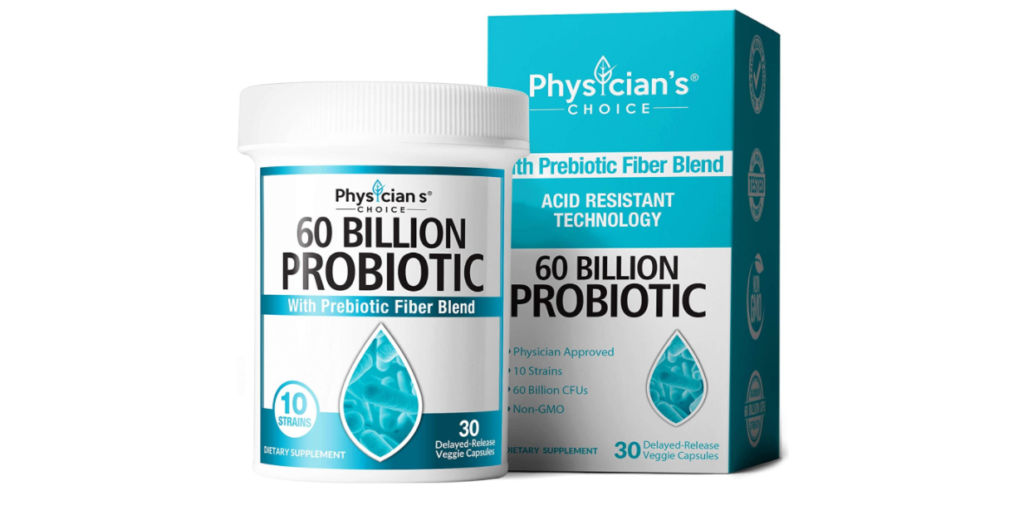
Most Popular Probiotic
Physician’s Choice 60 Billion Probiotic With Prebiotic Fiber
It contains 10 different strains of bacteria (Lactobacillus and Bifidobacterium) along with an organic prebiotic blend composed of Jerusalem artichoke root, Acacia senegal, and chicory root.
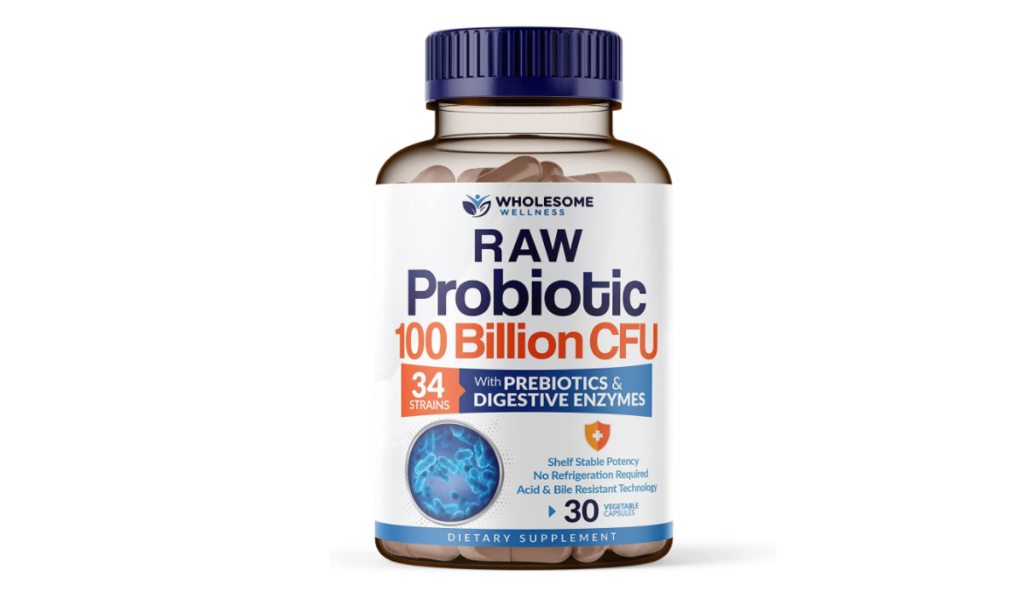
Most Potent Probiotic
Wholesome Wellness RAW Probiotic 100 Billion CFU
This product comes jam-packed with 34 different strains of bacteria, an organic prebiotic blend, a digestive enzyme complex, and a raw fruit and veggie blend.
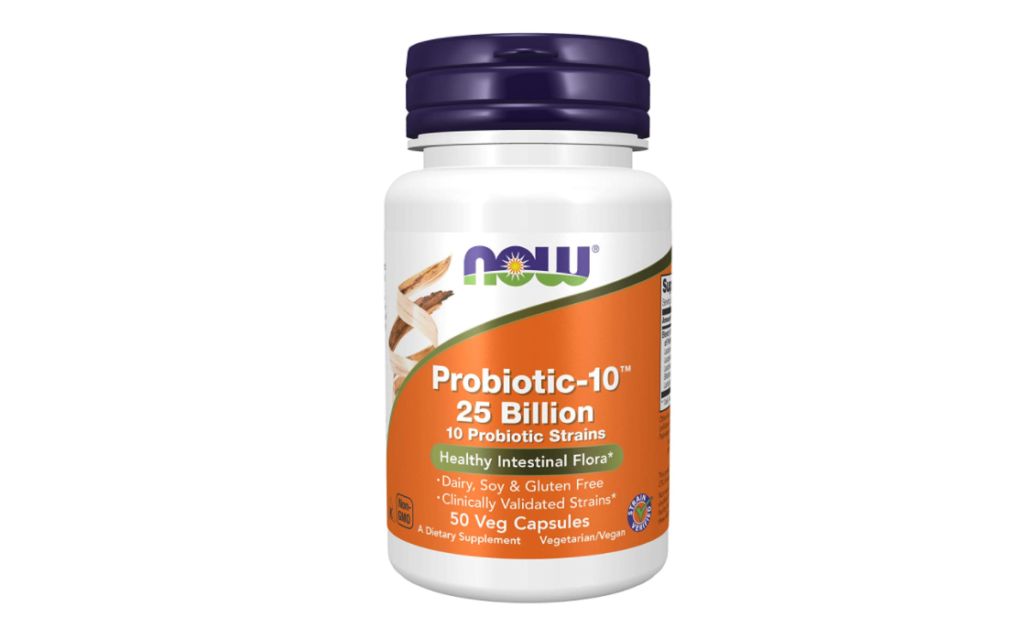
Best Value Probiotic
NOW Supplements Probiotic-10
This supplement happens to offer one of the most affordable probiotics with strain specificity. It contains 10 different bacterial strains, each labeled with its genus, species, and individual number. Its encapsulation is made with FOS-prebiotic to ensure smooth delivery and beneficial bacterial growth.
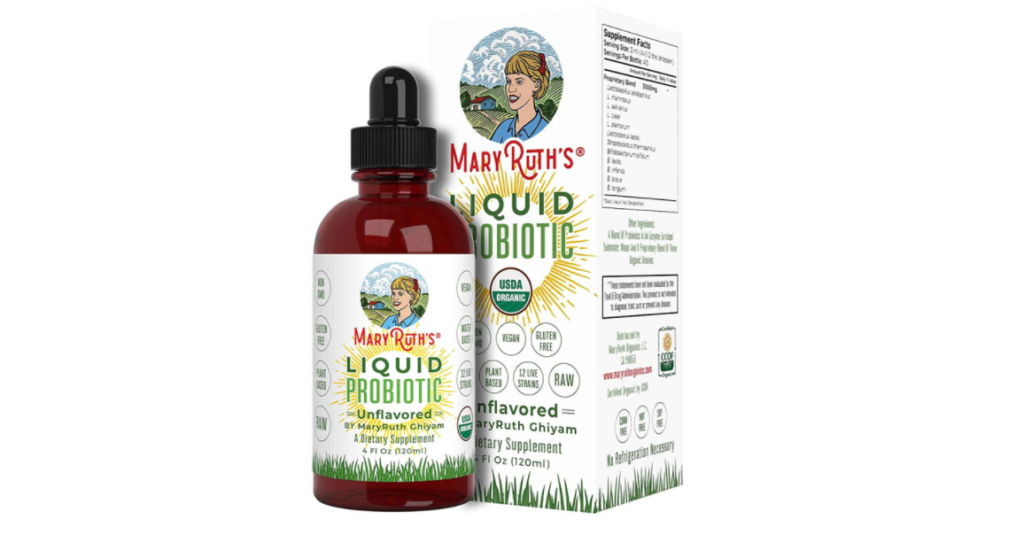
Best Liquid Probiotic
Mary Ruth’s Liquid Probiotic
This liquid probiotic is unflavored and 100% vegan. It’s made from 12 probiotic strains along with a proprietary, organic grass blend. It comes with a dropper and can be taken as is or added to food and other liquids.
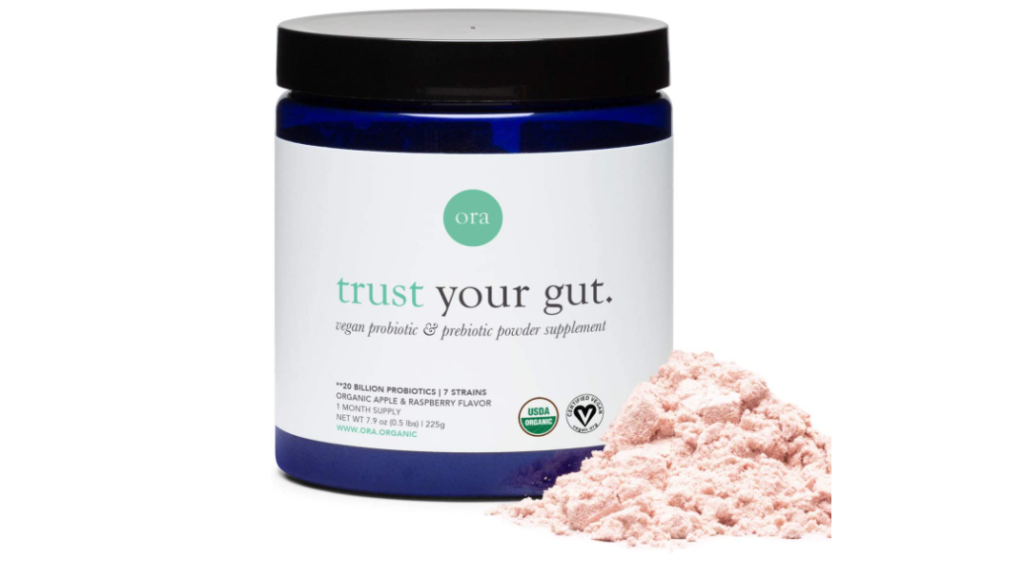
Best Probiotic Powder
Ora Organic Prebiotic and Probiotic Powder Supplement
This product contains 7 probiotic strains and an organic prebiotic blend made from Jerusalem artichoke and tapioca. It also is available in Apple Raspberry or Lavender Lemonade flavors, each derived from natural, organic ingredients.
Probiotics are live bacteria and yeasts that exhibit major health benefits when consumed. People mostly use them to resolve digestive problems and restore their gut microbiome
Recent research demonstrates that probiotics may also help with the management of autoimmune diseases. Scientists have observed that some patients with autoimmune diseases also have disturbed intestinal environments. Thus, probiotics recently became a popular tool for symptom management associated with these conditions. However, researchers are still not sure whether disturbed gut flora is one of the causes of autoimmune disorders or an effect.
Probiotics And Autoimmune Disease
Our immune systems protect our bodies from outside threats, eliminating foreign cells that try to enter our bodies. Sometimes, however, this line of defense can’t tell the difference between our cells and those that need to be eliminated. This results in at least 1 of 80 different autoimmune disorders that involve the immune system attacking the body’s normal cells.
Digestive issues are among the common symptoms of autoimmune disorders. Several studies have shown that probiotics can help manage both gastrointestinal symptoms and inflammation associated with autoimmune disorders like multiple sclerosis, rheumatoid arthritis, and ulcerative colitis. In addition, other conditions like psoriasis, Crohn’s disease, diabetes, and celiacs could potentially benefit from the use of probiotics.
Probiotics For Psoriasis
Psoriasis is a chronic skin condition characterized by systemic inflammation. The pathogenesis of this disease is not fully understood, but it looks like gut microbiota plays an important role in its development and general maintenance of skin health.
Several reviews have examined the relationship between psoriasis and gut microbiota and have found significant disturbances in intestinal microflora in patients with psoriasis. Modulation of said microflora can lead to an improved course of psoriasis and may increase the efficacy of regular treatments. That’s why your doctor may suggest using probiotics for this autoimmune disorder.
Probiotics For Crohn’s Disease
Crohn’s disease is a type of inflammatory bowel disease (IBS) and it is described by the inflammation in some part of the digestive system. Its symptoms include abdominal pain, malnutrition, severe diarrhea, weight loss, and chronic fatigue.
The disruption of intestinal microflora is one of the main factors in the development of Crohn’s disease. Studies examining intestinal flora diversity show that patients with this condition have 25% fewer microorganism species than healthy people. Greater diversity means more balance, which is why taking probiotics could help relieve some of the gastrointestinal problems.
Probiotics For Diabetes
Type 1 diabetes is an autoimmune disorder where beta cells in the pancreas are destroyed by the body’s immune system. As a result, you are unable to produce insulin, which is a vital molecule for transporting glucose inside cells.
Studies show that early life gut microbiota is linked to the development of type 1 diabetes. Taking probiotics and prebiotics could reduce intestinal inflammation and help people struggling with this condition.
Probiotics For Celiac
Celiac disease is an autoimmune disorder affecting the intestine. It develops in genetically predisposed individuals, and it’s triggered by dietary gluten exposure.
Researchers have observed certain imbalances in intestine microbiota, such as a decrease of Bifidobacterium species and an abundance of Bacteroides. These disruptions persist even when people with celiac disease stick to a gluten-free diet.
Probiotics For Arthritis
Arthritis is an autoimmune disorder that affects joints. Its symptoms include inflammation, tenderness, swelling, pain, and stiffness in the joints. However, this condition can also damage other parts of your body, such as your eyes, skin, heart, blood vessels, and lungs.
Studies examining the efficacy of probiotics in the treatment of rheumatoid arthritis found that patients who took probiotics had lower levels of pro-inflammatory cytokines. However, the overall clinical effects are not clear and we need more studies to determine the full potential of probiotics in managing arthritis symptoms.
How Long Does It Take For Probiotics To Work?
The effects of probiotics can be seen anywhere from a few days to several weeks after you start taking them. It depends on the condition, the results you are looking for, dosage, and other factors.
On average, you can expect observable changes after 2-3 weeks of use. In that time, probiotics should increase the number of good bacteria in your gut and overthrow harmful microflora. That should decrease inflammation and improve digestive symptoms.
Best Probiotics For Autoimmune Disease
While assessing the quality of different probiotic supplements for autoimmune disorders, we evaluated quality, brand history, reviews, third-party testing, and certificates. We also focused on CFU (colony forming units), as it is one of the most important factors for probiotics. CFU estimates the number of live bacteria in each sample and is commonly used in microbiology.

Best Rated Probiotic Supplement
Physician’s Choice 60 Billion Probiotic With Prebiotic Fiber
This probiotic by Physician’s Choice contains an outstanding 60 billion CFU per capsule, which is more than most other brands. The formulation includes ten different bacteria strains and an organic prebiotic blend that helps create a suitable environment for these bacteria to grow.
The bottle is designed to keep the moisture out, making this probiotic shelf-stable with no need for refrigeration. The recommended dose is one capsule per day, and each bottle contains 30 capsules.
This probiotic supplement is manufactured in the US, and it’s third-party tested for quality and potency.

Most Potent Probiotic Supplement
Wholesome Wellness RAW Probiotic 100 Billion CFU
Wholesome Wellness has a history of producing top-quality supplements. This supplement contains 100 billion CFU per serving, making it one of the most potent probiotics on the market.
This formulation contains 34 different bacteria strains, an organic prebiotic blend, a digestive enzyme complex, and a raw fruit and veggie blend. All of these components additionally increase potency and could provide many benefits.
This probiotic supplement is produced in GMP-certified US labs. It is shelf-stable, and each bottle contains 30 capsules. The recommended daily dose is one capsule.

Best Value Probiotic Supplement
NOW Supplements Probiotic-10
NOW has been making supplements for over 50 years, and all its products are GMP-certified and packaged in the US. Its Probiotic-10 supplement contains 25 billion CFU per capsule. The blend consists of ten different bacteria strains proven to support healthy immune system functioning. You should take it once or twice per day on an empty stomach or between meals for the best effects.
This probiotic formulation is sold in shelf-stable containers with 50 veggie capsules. Once you open the bottle, you should store it in the fridge.

Best Value Probiotic Supplement
Mary Ruth’s Liquid Probiotic
If you are not a big fan of capsules, then this liquid probiotic by Mary Ruth’s Organics is an excellent choice for you. It is 100% plant-based, organic, and made from raw ingredients. The company doesn’t display the CFU number, but they say that there are around 10 billion alive bacteria strains at the time of bottling.
The 4-oz bottle contains 40 servings with 12 different bacteria strains. Since this liquid probiotic is unflavored, you can easily add it to your drinks or meals without compromising their taste.

Best Probiotic Powder
Ora Organic Prebiotic and Probiotic Powder Supplement
The probiotic powder by Ora Organic contains 20 billion CFU per serving. The container size is 0.5 pounds, and it produces around 30 servings. The unique formulation features seven probiotic strains and an organic prebiotic blend made from Jerusalem artichoke and tapioca.
The great thing about powder probiotics is that they are shelf-stable and perfect for travel. All you need to do is add a scoop of this apple-raspberry flavored powder to your beverage, mix it up, and drink it. All ingredients used in this formulation are vegan and USDA-organic certified.
Studies And Research You Can Read About Probiotics For Autoimmune Disease
- Probiotics in Autoimmune and Inflammatory Disorders (Nutrients, 2018)
- Gut–Skin Axis: Current Knowledge of the Interrelationship between Microbial Dysbiosis and Skin Conditions (Microorganisms, 2021)
- Skin and Gut Microbiome in Psoriasis: Gaining Insight Into the Pathophysiology of It and Finding Novel Therapeutic Strategies (Frontiers in Microbiology, 2020)
- Gut Microbiome in Psoriasis: An Updated Review (Pathogens, 2020)
- Update on intestinal microbiota in Crohn’s disease 2017: Mechanisms, clinical application, adverse reactions, and outlook (Journal of Gastroenterology and Hepatology, 2017)
- Probiotics and Prebiotics for the Amelioration of Type 1 Diabetes: Present and Future Perspectives (Microorganisms, 2019)
- Probiotics in Celiac Disease (Nutrients, 2018)
- The therapeutic effect of probiotics on rheumatoid arthritis: a systematic review and meta-analysis of randomized control trials (Clinical Rheumatology, 2017)
Editor’s note: we are regularly updating this review. If you see any problems, weird interpretations of the data, or just want to say hi, please reach out to hello@the-unwinder.com.
Photo by JESHOOTS.com from Pexels
